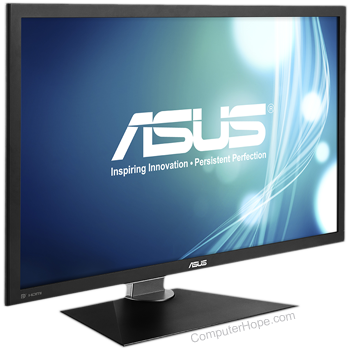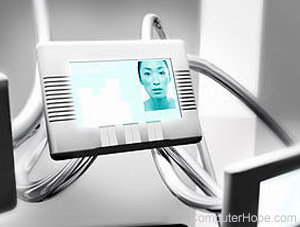How to work from home

Many companies have jobs that require work be done on a computer to complete most, or all, of their daily tasks. Today, it's possible to complete many of these computer-related jobs anywhere with an Internet connection. It often is cheaper for companies to allow employees to work from home, eliminating the costs of office space for those employees.
If your job requires you to be on a computer most of the time, you can work from home. But, how do you work from home? What is needed to get a home office up and running? How can you attend meetings from home? This page answers these questions and offers advice to help you succeed in a home working environment.
What do I need to work from home?

The following are required or recommended resources for working remotely.
Internet connection (required)
Working from home requires Internet access, preferably a high-speed Internet connection. Without the Internet, there's no ability to connect to resources at your workplace. Not having an Internet connection makes it nearly impossible to work from home.
Laptop computer (recommended)
Having a laptop makes it possible to be more mobile, travel for work, or go into the workplace periodically and bring your computer with you.
Computer desk (recommended)
A computer desk is designed specifically for working on and with a computer. Computer desks often feature a keyboard tray to more easily store and use the keyboard, and storage for computer accessories and hard copy documents. A computer desk makes it possible to have everything you must do your job efficiently and effectively right at your fingertips.
Webcam or laptop with a camera (recommended)
If you do video conferencing, a high-quality webcam or laptop camera can make all of the difference in how you're presented to others in the conference. Also, a camera with a good microphone or a good, separate microphone helps make sure you're clearly heard.
Phone (recommended)
If your job requires you to receive and make calls, you want to do that over your phone. If your job does not provide a phone solution, get a magicJack or another VoIP (Voice over Internet Protocol) solution gives you the ability to handle calls.
If your job requires you to use your phone or make a purchase to help achieve your job role, they should be compensating you for any money spent.

External monitors (nice to have)
Having a monitor or two connected to your laptop makes it easier to work at home. The screen built into a laptop is small and can cause eye strain. An external monitor provides a larger screen and wider viewing angle, making it easier to read text, reducing strain on your eyes and neck.
External keyboard and mouse (nice to have)
You can use the keyboard and mouse built into the laptop, but it may cause strain on your wrists. Some laptop keyboards may be missing vital keys you must complete your work. An external keyboard and mouse can reduce wrist strain, or carpal tunnel syndrome, and often includes all the vital keys. The mouse scroll wheel and other mouse buttons can improve your work efficiency.
Computer chair (nice to have)
When working on a computer for multiple hours, sitting in a comfortable and supportive chair is essential. In your home office, have a chair designed to properly support your back and neck, to reduce strain on your body and minimize back and neck pain. A computer chair is designed for prolonged use of a computer, providing necessary back and neck support. There are several types of computer chairs, each designed for a range of hours you sit at a computer. Get a computer chair rated for at least 6 to 8 hours of usage to get improved back and neck support with more comfort while sitting for prolonged periods.
How do I connect to workplace resources from my home?

When you are at your workplace, you can access your company e-mail, view files stored on servers or in the cloud, and collaborate with other employees.
VPN
At home, you can access these same resources and collaborate with co-workers by connecting to your company's VPN (virtual private network).
Many companies operate a VPN so employees can securely access work servers, e-mail, and other resources, that are normally accessible only on the company's local network. Your company's IT department can help set up the VPN software and connection on your computer, allowing you to connect to work resources while at home. Connecting to a VPN makes it possible to access resources at your workplace building from the comfort of your home.
Groupware
Collaborating with co-workers is often required to complete work tasks, like working on projects, creating documentation for work processes, or planning official gatherings. Microsoft SharePoint, Microsoft Teams, and Google Docs are three popular groupware services for collaborating on documents and sharing them with a team or organization.
If I work from home, how do I attend work meetings?

When working from home, you can use teleconferencing services to call into work meetings, talk with other employees, and discuss projects, tasks, or other topics. Many of these teleconferencing services allow you to use a webcam to allow others to see you, and for you to see others, also known as videoconferencing.
Some popular services for teleconferencing and videoconferencing are listed on the page linked below. Check with your company to determine which of these services they support or have an account with for your use.
For help connecting to and using the videoconferencing service your company supports, ask your company's IT department for official instructions.
Is it hard to work from home?
You may have heard someone say it would be great to work from home, or you may think so yourself. It's an excellent experience and very rewarding, but it comes with some difficulties as well. At the workplace, you get to see co-workers every day, have more hands-on experience with company processes and day-to-day activities, and feel like you're part of the company. When you work from home, these kinds of experiences are often lost, physically and psychologically.
Common difficulties that employees have when they work from home include feeling left out, missing out on activities and gatherings at work, and not seeing any of their co-workers. Humans are social animals, and we like to see other people, talk with other people, and be around other people. Working at home removes people from those environments, and can sometimes result in depression or increased stress.

One of the most difficult shortcomings of working from home is getting distracted and not getting work completed. At a workplace, there are distractions, but you are surrounded by other employees who are working. At home, distractions are around every corner. A family member may be watching TV or listening to the radio, children may be playing a game or running around the house, or pets may want attention. Family members can interrupt you frequently, asking questions, or needing you to help them with something.
How do you handle these physical or psychological difficulties? How do you avoid getting stressed out or distracted from your work? How can you make working from home an efficient, enjoyable, and rewarding experience?
Here are some ideas and tips to help you overcome these common work-from-home issues and be successful.
Create a schedule
When working from home, it's a lot easier to hit that snooze button a few extra times and tell yourself you'll take care of work later in the day. Create a schedule or follow your employer's schedule they expect you to work. If you cannot follow a schedule because of distractions, create a weekly hourly goal you must work and have a method of tracking worked hours.
Some employers may want any employee who works from home to always be on the clock. However, no one should be expected to be on the clock 24/7. Your schedule should also have times when you don't work. In other words, if something critical comes up, or you must reply to an e-mail during your off-hours, it's not handled until you're supposed to be working again.
Any company that requires someone 24/7 should have multiple employees who work at different times of the day. However, for those situations when you may be the only person who can solve a problem, you should be paid extra to be working during your off hours. If you're a contract worker or salary, any time you work in your off-hours, sometimes called comp time, should be subtracted from your scheduled work time.
Work in a room with a door

Set up your home office in a room with a door you can close. Closing the door helps reduce or block distracting sounds in the house, like children, music, or TV. Having a window or two in the room to see outside and allow natural light into the room, if possible, is a necessity. Without windows, you can begin to feel trapped, like you are working in a dungeon. Natural light, including sunlight, helps to reduce stress and avoid becoming depressed.
A window can also be a distraction if people are frequently outside the window. If you find yourself being too distracted by things happening outside, it's also a good idea to close the blinds on a window occasionally to help keep you focused.
Have rules to prevent interruptions
Explain to your family members that, when your office door is closed, it means you cannot be interrupted. Closing the door also helps prevent distractions, as you are less likely to hear the TV or music.
Make time for your family
Eat lunch with family members, if they are also home. Plan for family dinner time after work. Play games or take walks with your family, away from your office. You need to separate work from home life and create a healthy work-life balance.
Have conference calls
Schedule conference calls to discuss topics or project tasks with co-workers. Utilize video conferencing, if possible, to have face time with others. Hearing the voices and seeing the faces of people you work with helps meet our social needs as humans, and helps reduce the chances of becoming depressed.
Make a bed for your pets
If you have pets, make them a bed in your office or near your working environment. By keeping a nearby bed, the pet can remain near you and comfortable, which helps make them less of a distraction during work.
Drink water

Fill a water bottle and keep it in your office. Drinking water and staying hydrated helps you focus better and be able to complete your tasks for work.
Take breaks
Take a break and get up from your chair every hour, if possible. Walk around the house or do some jumping jacks to get the blood flowing in your body. A little exercise every hour helps improve your focus and breaks up your work. Working for long periods with no breaks can lead to stress.
If you're drinking enough water, as mentioned above, you'll need to take bathroom breaks. These bathroom breaks help force you to take a break.
